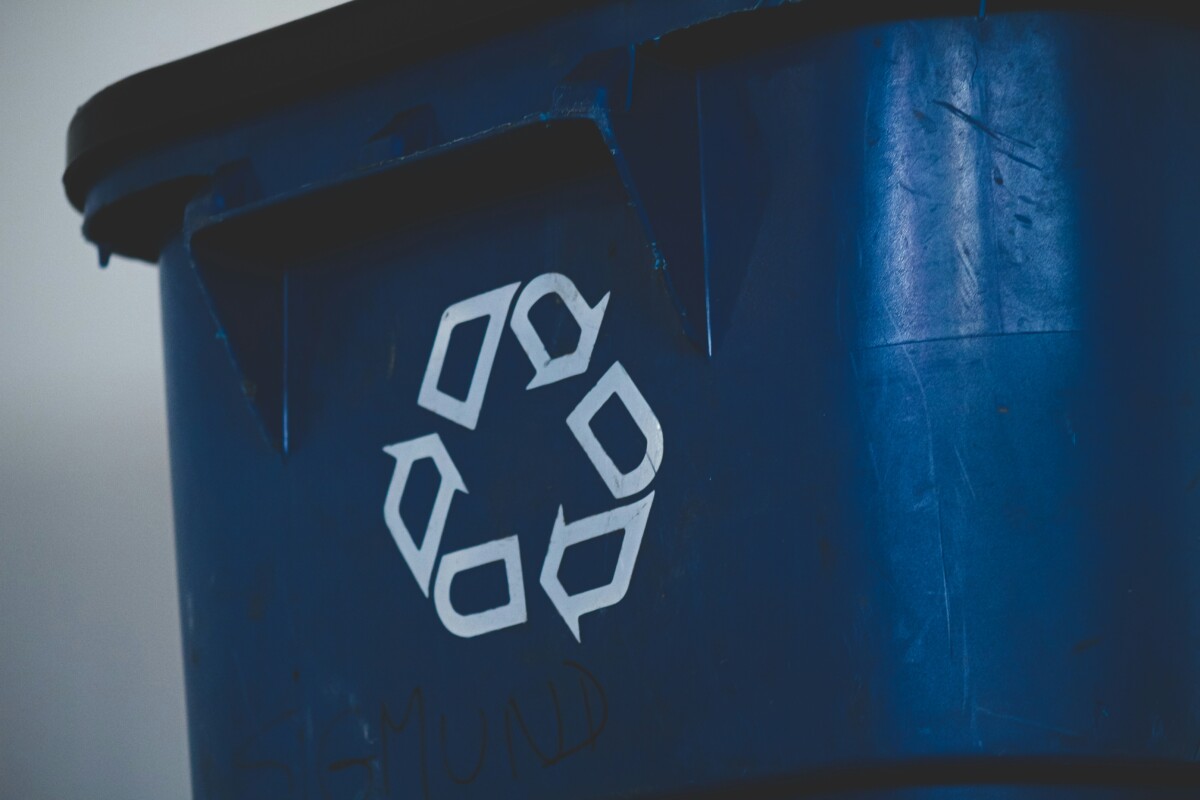Listen to the full podcast episode on YouTube, Spotify, and Apple Podcasts.
In an age where technological advancements rapidly make devices obsolete, the ethical management and recycling of electronic waste (e-waste) have become increasingly pressing issues. The global accumulation of discarded electronics presents not only environmental hazards but also vast opportunities for sustainable practices. By comparing the large-scale corporate efforts of companies like Apple with the innovative approaches of smaller ventures such as The Recycled Candle Company, we can explore a spectrum of strategies in e-waste management, highlighting the effectiveness and impact of different recycling practices across industries.
Corporate Giants
Large corporations, particularly in the tech industry, have developed structured programs to handle e-waste. Apple, for example, has positioned itself as a leader in environmental responsibility with its comprehensive recycling programs. These programs are designed to reclaim valuable materials from old devices, such as gold, copper, and rare earth elements, which are then recycled and reused in new products.
Apple’s approach to e-waste is driven by a dual motive: reducing environmental impact and recovering valuable resources. The company employs sophisticated machinery to dismantle devices and sort their components, ensuring maximum material recovery. This not only mitigates the waste but also reduces the need to mine new materials, aligning with global sustainability goals.
However, the scale and scope of such corporate recycling programs often face criticism. Critics argue that despite their efficiency in material recovery, these programs may prioritise corporate profits over genuine sustainability. Richard notes,
“It’s a real minefield of a situation… you just gotta choose which hat you wanna wear when you’re passionate about it.”

The Creative Approach
In contrast to the high-tech, industrial scale of corporate e-waste recycling, small ventures often adopt more creative and community-oriented approaches. The Recycled Candle Company, co-founded by Richard Hills-Ingyon, exemplifies how small businesses can innovate in recycling practices. Originally focused on transforming discarded wax into new candles, the company has expanded its philosophy to encompass broader environmental impacts.
Richard shares,
“Transparency and the conversation allow you as a business owner to develop based on what your customers want, what your audience is actually interested in, rather than you just throwing stuff out there.”
Small ventures like The Recycled Candle Company often operate with a higher degree of transparency and community engagement. They are typically more flexible in adapting their business models to incorporate ethical practices that resonate with local communities. For instance, by involving local residents in the collection and sorting of recyclables, these businesses foster a sense of community responsibility and environmental stewardship.
Moreover, smaller companies may also experiment with unique recycling methods that are not economically viable on a larger scale but offer substantial environmental benefits. These can include upcycling or repurposing materials in ways that preserve more of the original product’s value, rather than breaking them down into raw materials.
Comparative Impact and Effectiveness
When comparing the impact and effectiveness of these two approaches, it becomes clear that both have their merits and limitations. Large corporations have the capacity to process vast quantities of e-waste efficiently and are crucial in managing the sheer volume of global electronic scrap. However, their programs are often rigid, lacking the personal touch that can drive deeper behavioral change among consumers.
On the other hand, smaller ventures, while limited in scale, can play a pivotal role in innovating and demonstrating alternative recycling methods. They are also more likely to engage directly with consumers, educating them about the importance of sustainability and responsible consumption.
Integrating Best Practices
The future of ethical e-waste management lies in integrating the strengths of both corporate and creative approaches. Large companies can learn from the agility and community focus of smaller ventures, perhaps adopting more transparent practices and supporting local recycling initiatives. Meanwhile, smaller ventures can benefit from the technological advancements and resources of large corporations, scaling up their impactful practices without compromising their ethical foundations.
For policymakers and industry leaders, the challenge is to create a regulatory environment that encourages innovation while ensuring that all players in the e-waste recycling market operate under fair and environmentally sound practices. This could include incentives for companies that prioritise extended product lifecycles and provide support for local recycling initiatives that aim to up-cycle rather than just recycle.
As we navigate the complexities of electronic waste and its implications for the environment, it becomes increasingly important to foster a collaborative approach that leverages the strengths of both large corporations and small creative ventures. By doing so, we can develop a more sustainable, responsible, and impactful e-waste recycling industry that not only preserves the planet but also enriches our communities.
Building Trust, Together
👉 Join The Anti-Greenwash Charter and join a growing movement of responsible communicators who are raising the bar for integrity in sustainability storytelling.
Want to be a guest on our show?
Contact Us.
The Responsible Edge Podcast
Queensgate House
48 Queen Street
Exeter
Devon
EX4 3SR
Recognition.
Subscribe Now.
Subscribe below to receive a monthly email featuring all new episodes of The Responsible Edge Podcast.
© 2025. The Responsible Edge Podcast. All rights reserved.
The Responsible Edge Podcast® is a registered trademark of The Anti-Greenwash Charter Ltd.
Created by The Anti-Greenwash Charter
© 2025. The Responsible Edge Podcast


